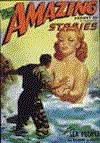|
|
|
Kael measured movies on the same scale -- her own September 6, 2001 By Franklin Harris It is somehow unseemly for one reviewer to comment on another, but that has never stopped me before. During her 38-year-career, Pauline Kael became the most influential movie critic of her time. According to the orthodox view, only one film critic in the history of the profession, James Agee, surpasses her. That is quite a reputation. She wrote for Harper's, Vogue, McCall's, The New Republic and numerous other publications, but she made her name during her long stint at The New Yorker. Her reviews set the standard for movie criticism, and her influence is so pervasive that even those of us who have read little of her output still find ourselves trying, however lamely, to imitate her. She invented pugnacious, conversational movie criticism. Or, if she didn't, she at least perfected it. She died Monday at 82 after a long struggle with Parkinson's disease. Kael was a polarizing figure, as most people who are truly passionate about their work are. While she loved movies, she never failed to skewer those she deemed unworthy. You love her when you agree with her and despise her when you don't. I can delight in her wicked demolition of a cinematic idol like "The Sound of Music," truly one of the most saccharine movies ever produced, and then ridicule her narrow-minded pan of "2001: A Space Odyssey." Criticism is war, and the keyboard is our cluster bomb. At least that is what reading Kael sometimes feels like. There is a school of movie reviewing that says you should judge a film by its own standard. Does the film successfully do what it sets out to do? I tend to subscribe to this school, although I would be hard pressed to give thumbs up to, say, a Meg Ryan movie, no matter how successfully Meg Ryanish it is. Kael was a different sort of reviewer. She measured every movie on the same scale -- her own. And, of course, her tastes were not necessarily those of anyone else. Writing in 1983 about "Return of the Jedi," she said, "The battle between good and evil, which is the theme of just about every big fantasy adventure film, has become a flabby excuse for a lot of dumb tricks and noise." George Lucas tried to get back at Kael by naming the villain in "Willow" after her. But "Willow" is such a dreadful movie that the plan backfired. It isn't everyone who can agree with Kael that the true Golden Age of cinema was the 1970s. I do, but based on a different list of movies, although I share her love for the early films of Brian DePalma. (She is on her own with some of his later stuff.) Reading what others have written about Kael, a common theme arises. Supposedly her greatest virtue as a critic was her fearless disregard for popular tastes. Never mind what the masses like, these are the films worth seeing! But I wonder how unusual such iconoclasm really is. Nowadays we say some movies are impervious to criticism. Films like "Jeepers Creepers," which opened in first place last weekend, pack theaters and make millions no matter how awful the reviews are. Obviously, there are lots of reviewers unmoved by box-office popularity. No, Kael's iconoclasm was of a different sort. It wasn't that she didn't care what the public thought; she didn't care what her fellow critics thought. That is what made Kael different. After all, the dirty little secret of criticism -- be it of movies, books, music or whatever -- is that critics write mostly to impress each other. But she thought nothing of deflating "American Beauty" even as other reviewers were drooling all over it. But, lest I give the wrong impression, Kael did love movies. She had her favorites, like "Bonnie and Clyde" and "Last Tango in Paris." She just wanted more movies worth loving, which is as good an epitaph as any for a film critic. |

RECENT COLUMNS
Order a helping of Cartoon Network's 'Robot Chicken'
03/31/05
Campaign against video games is political grandstanding
03/24/05
Prize-winning author is 'Wrong About Japan'
03/17/05
Censored book not a good start
03/10/05
Some superhero comics are for 'fanboys' only
03/03/05
'Constantine' does well with its out-of-place hero
02/24/05
'80s publisher First Comics' legacy still felt
02/17/05
Director's cut gives new 'Daredevil' DVD an edge
02/10/05
Put the fun back into 'funnybooks'
02/04/05
Is 'Elektra' the end of the road for Marvel movies?
01/27/05
'House of Flying Daggers' combines martial arts and heart
01/20/05
Anniversary edition of 'Flying Guillotine' has the chops
01/13/05
Movie books still have role in the Internet era
01/06/05
Looking ahead to the good and the bad for 2005
12/30/04
The best and worst of 2004
12/23/04
'Has-been' Shatner is a 'transformed man'
12/16/04
© Copyright 2005 PULP CULTURE PRODUCTIONS
Web site designed by Franklin Harris.
Send feedback to franklin@pulpculture.net.